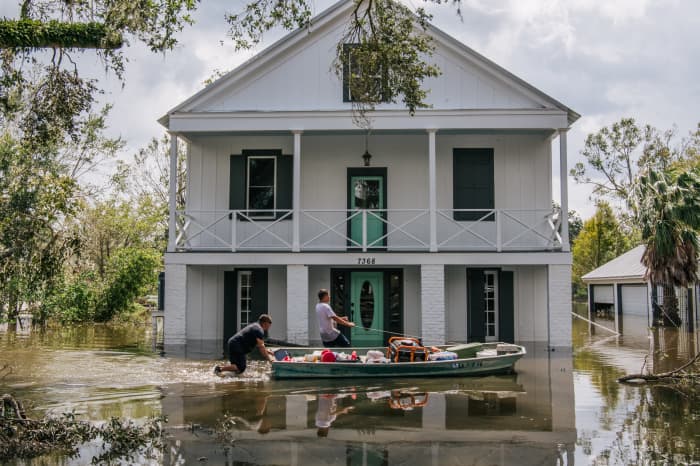This post was originally published on this site
As the country enters hurricane season from June 1 to the end of November, homes in New York and Miami are at the highest risk for property damage, according to a report released Wednesday from housing-research firm CoreLogic.
Overall, more than 33 million homes in America are at risk of suffering damage from hurricanes, according to the annual report from CoreLogic, which analyzed the impact of hurricanes, storm surges, and wind risk exposure, for single-family and multi-family homes along the Gulf and Atlantic coasts.
The report warned that the damage to property this season could be particularly bad in these specific areas:
Homes in the New York City metro area will likely experience the most damage, with 900,000 homes at risk of storm surge damage, and more than four million homes at risk of wind damage, according to CoreLogic.
“You have a concentration of risks,” Tom Larsen, CoreLogic’s principal for industry solutions, told MarketWatch.
“‘We’re reminded of Superstorm Sandy from a few years ago that caused significant losses.’”
In New York, there’s “an awful lot of value,” he explained. From a high population that’s concentrated in a small area, to a concentration of wealthy homes in one place, on top of coastal exposure, there’s a lot that makes New York vulnerable, Larsen said.
“We’re reminded of Superstorm Sandy from a few years ago that caused significant losses, even though it wasn’t even a hurricane,” Larsen added.
Sandy caused approximately $19 billion in damages and lost economic activity across NYC, according to the city. More than 69,000 residential units were damaged, and thousands of New Yorkers were displaced.
The total cost of reconstruction should a hurricane hit is high. CoreLogic expects the reconstruction cost value to be nearly $433 billion for homes suffering from storm surge damage, and more than $2.2 trillion for wind damage.
Homes in Miami rank second when it comes to the greatest risk of damage, with 770,000 homes at risk of storm-surge damage, and two million more homes at risk of wind damage. Homes that suffer storm-surge damage would be on the hook for nearly $193 billion in reconstruction cost value, while homes hit by hurricane winds would see a cost of $521 billion.
When it comes to the states that may see the most damage from hurricanes, Florida, Louisiana and Texas top the list.
If you’re a homeowner, given the hurricane risks, “make sure that you have adequate insurance,” Larsen stressed. “It’s a big, big financial expense,” if you are unable to move back into your home due to inadequate insurance, he said.

Over 31 million single-family homes and 1 million more homes in multi-unit buildings were at moderate or greater risk from hurricane damage.
(PHOTO: BRANDON BELL/GETTY)
‘Financial trauma’ for homeowners
More than 31 million single-family homes and 1 million more homes in multi-unit buildings were at moderate or greater risk from the damaging winds of a hurricane, according to the report.
Over 7.5 million of these homes had direct or indirect exposure to the coast, and hence risk from coastal storm surge and damage from hurricanes.
Damages caused to property by hurricanes incurs significant financial losses for owners.
“Many homeowners experienced ongoing financial trauma,” the CoreLogic report stated. For instance, after Hurricane Ida evolved into a Category 4 storm before reaching land in Louisiana and flooding many homes, many homeowners fell very behind on their mortgage payments.
The percentage of homeowners who were at least three months behind payments in the town of Houma, La., jumped by 50%. Six months later, the serious delinquency rate was still above the state average.
Climate change is one of the key drivers that’s making storms more intense and wider reaching.
‘Particularly severe’ season ahead
And if you thought 2021 was bad, brace for a tumultuous 2022, the report said.
Last year, the hurricane season in the Atlantic was the third most active on record. There were 21 named storms which caused $80 billion in damages, which ended up being the third most expensive on record. Hurricane seasons in 2005 and 2017 wreaked more havoc.
“This hurricane season could be particularly severe for the U.S. Gulf Coast due to warmer-than-average Atlantic Ocean temperatures, an ongoing La Niña, and a stronger than average loop current in the Gulf of Mexico,” Daniel Betten, chief meteorologist at CoreLogic, said in a press release.
“Although La Nina events typically occur once every three years, this fall will likely be the fifth La Nina event over the last seven years.”
Write to: aarthi@marketwatch.com

